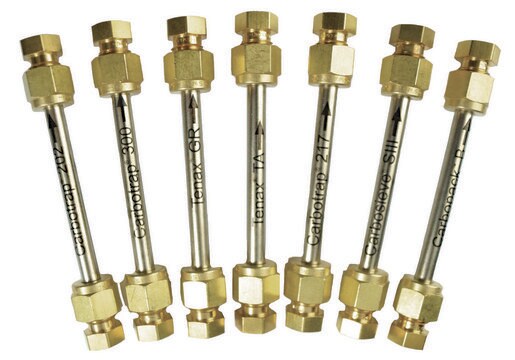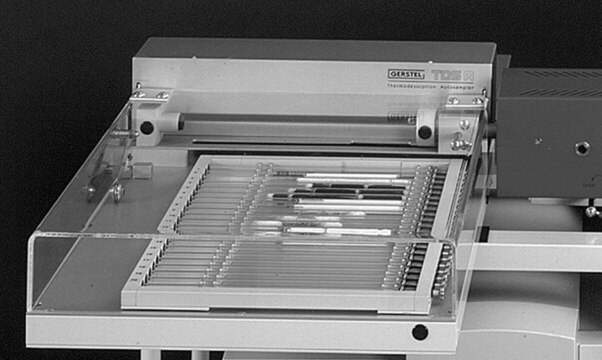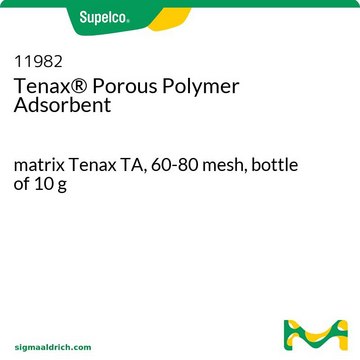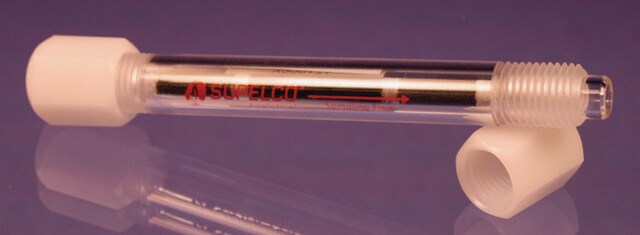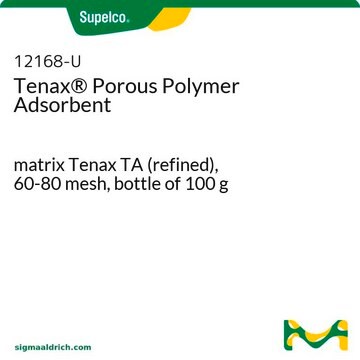30139-U
Carbotrap® 300 Thermal Desorption Tube
stainless steel, O.D. x I.D. x L 1/4 × 3 1/2, unconditioned, pkg of 10 ea
About This Item
Empfohlene Produkte
Produktbezeichnung
Carbotrap® 300, stainless steel TD tube, unconditioned, pkg of 10 ea
Materialien
stainless steel TD tube
Agentur
EPA TO-1,TO-2,TO-3,TO-17
Produktlinie
Carbotrap®
Leistungsmerkmale
unconditioned
Verpackung
pkg of 10 ea
Grünere Alternativprodukt-Eigenschaften
Waste Prevention
Safer Solvents and Auxiliaries
Learn more about the Principles of Green Chemistry.
sustainability
Greener Alternative Product
Methode(n)
active air sampling: suitable
AD × L
1/4 × 3 1/2
Matrix
Carbotrap® 300 graphitized carbon black (GCB)
Anwendung(en)
air monitoring
environmental
industrial hygiene
Kompatibilität
PerkinElmer, Markes, DANI, OI Analytical, and Shimadzu Instruments
Grünere Alternativprodukt-Kategorie
Suchen Sie nach ähnlichen Produkten? Aufrufen Leitfaden zum Produktvergleich
Allgemeine Beschreibung
Rechtliche Hinweise
Lagerklassenschlüssel
11 - Combustible Solids
WGK
nwg
Flammpunkt (°F)
Not applicable
Flammpunkt (°C)
Not applicable
Hier finden Sie alle aktuellen Versionen:
Analysenzertifikate (COA)
It looks like we've run into a problem, but you can still download Certificates of Analysis from our Dokumente section.
Wenn Sie Hilfe benötigen, wenden Sie sich bitte an Kundensupport
Besitzen Sie dieses Produkt bereits?
In der Dokumentenbibliothek finden Sie die Dokumentation zu den Produkten, die Sie kürzlich erworben haben.
Unser Team von Wissenschaftlern verfügt über Erfahrung in allen Forschungsbereichen einschließlich Life Science, Materialwissenschaften, chemischer Synthese, Chromatographie, Analytik und vielen mehr..
Setzen Sie sich mit dem technischen Dienst in Verbindung.
